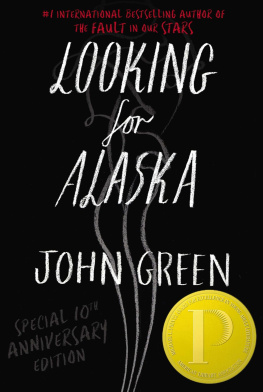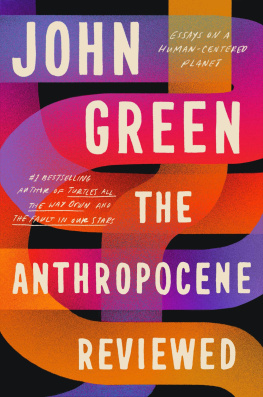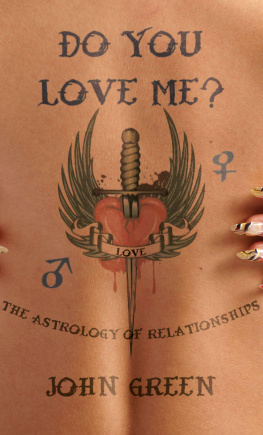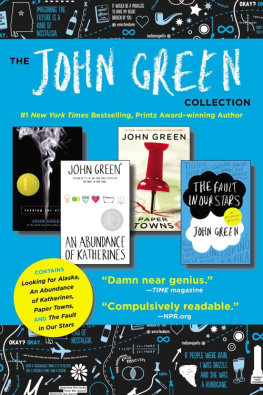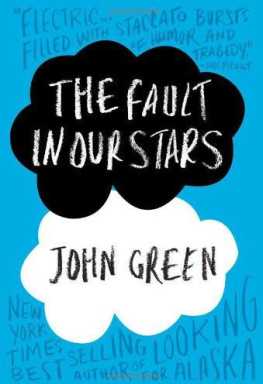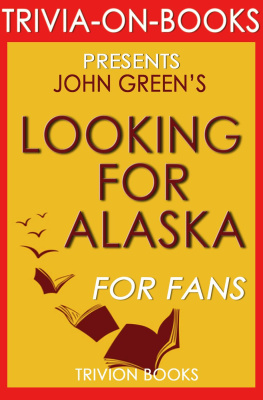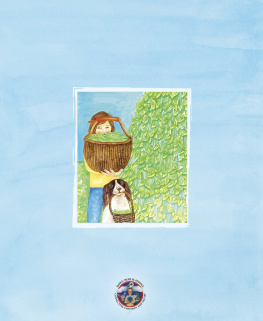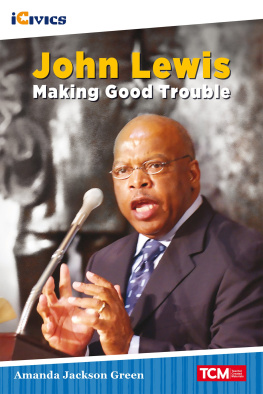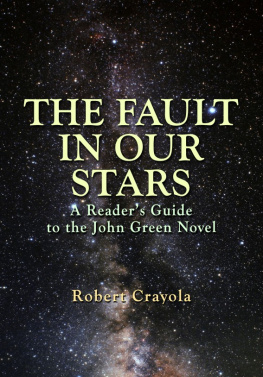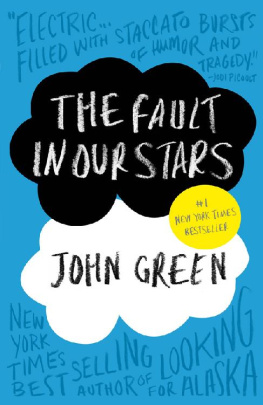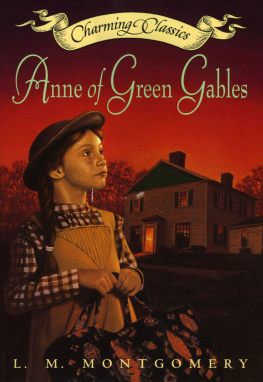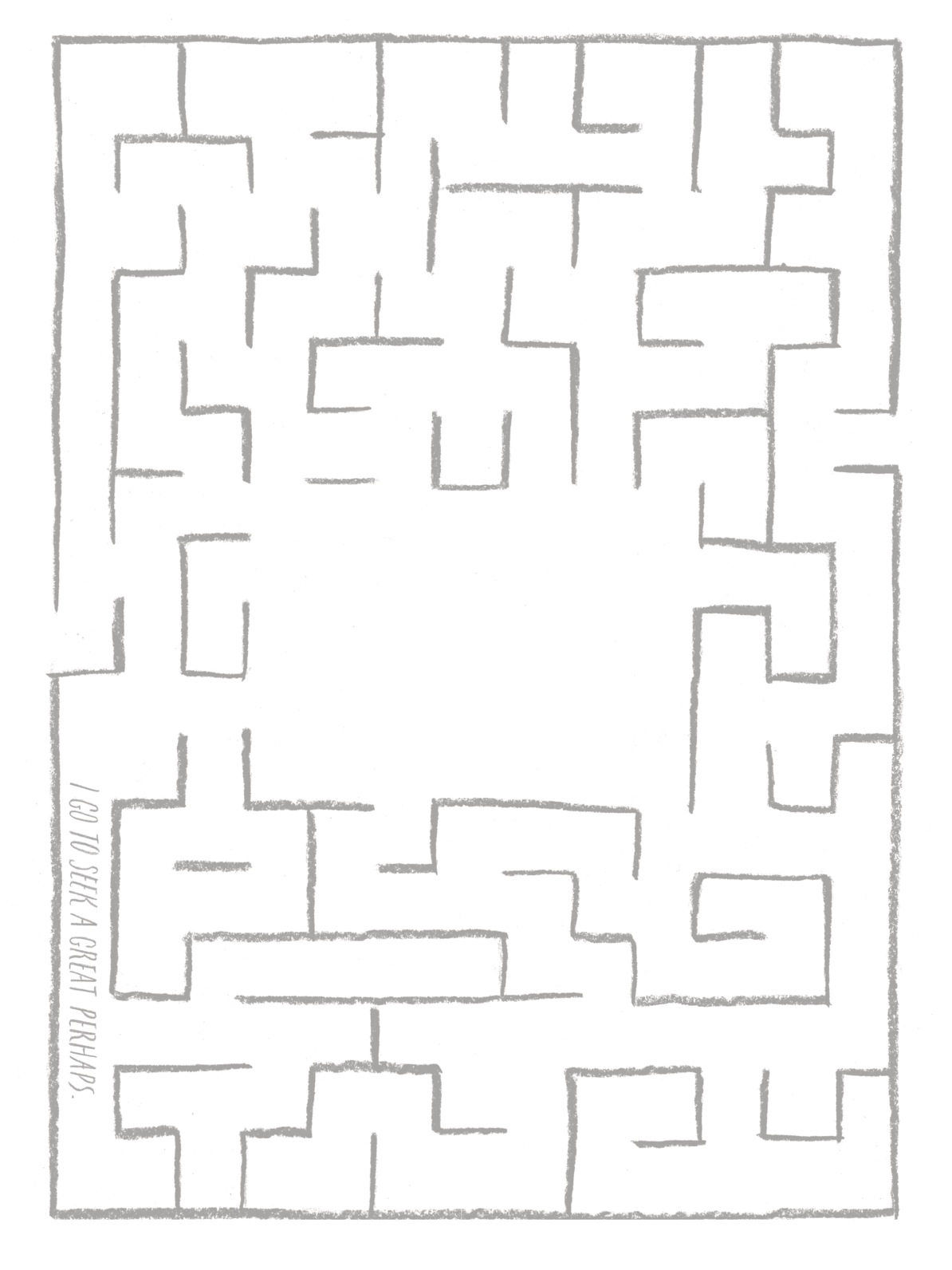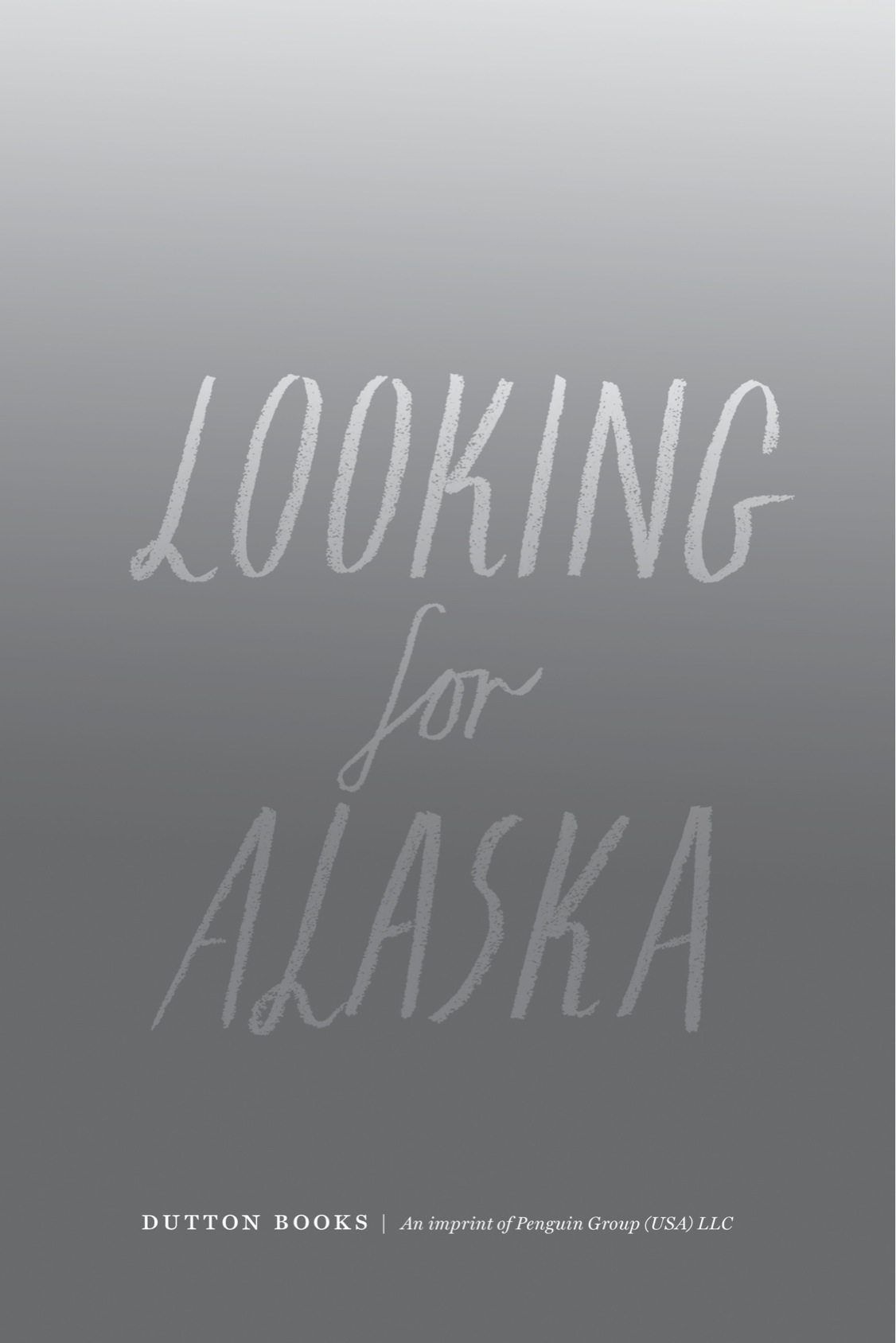ALSO BY JOHN GREEN
An Abundance of Katherines
Paper Towns
Will Grayson, Will Grayson
W ITH DAVID LEVITHAN
The Fault in Our Stars
Excerpts from The General in His Labyrinth
by Gabriel Garca Mrquez
from As I Walked Out One Evening,
by W. H. Auden
from Not So Far as the Forest,
by Edna St. Vincent Millay
DUTTON BOOKS
Published by the Penguin Group | Penguin Group (USA) LLC
375 Hudson Street, New York, New York 10014

USA | Canada | UK | Ireland | Australia New Zealand | India | South Africa | China
penguin.com
A Penguin Random House Company
Copyright 2005 by John Green
Additional content for this edition 2015 by John Green
Penguin supports copyright.
Copyright fuels creativity, encourages diverse voices, promotes free speech, and creates a vibrant culture.
Thank you for buying an authorized edition of this book and for complying with copyright laws by not reproducing, scanning, or distributing any part of it in any form without permission.
You are supporting writers and allowing Penguin to continue to publish books for every reader.
Library of Congress Cataloging-in-Publication Data
Green, John.
Looking for Alaska/John Green.1st ed.
p. cm.
Summary: Sixteen-year-old Miles first year at Culver Creek Preparatory School in Alabama includes good friends and great pranks, but is defined by the search for answers about life and death after a fatal car crash.
ISBN 0-525-47506-0
[1. Interpersonal relationsFiction. 2. Boarding schoolsFiction. 3. SchoolsFiction. 4. DeathFiction.]
I. Title.
PZ7.G8233Lo 2005
[Fic]dc22 2004010827
This edition ISBN: 978-0-698-40587-5
The publisher does not have any control over and does not assume any responsibility for author or third-party websites or their content.
Version_3
To my family: Sydney Green, Mike Green, and Hank Green
I have tried so hard to do right.
(the last words of President Grover Cleveland)
introduction
It is a funny business, to introduce a book you published ten years ago. In some ways, I am the least qualified person to write thisfor one thing, authors are notoriously poor when it comes to assessing their own work (nothing makes me shudder more than hearing an author friend tell me, Ive just written my best book yet). For another, I last read Looking for Alaska in January, 2005, so among almost everyone who has ever read the book, my memories are the most distant.
Looking for Alaska began for me in September of 2001. I was working at Booklist magazine as an editorial assistant and occasional book reviewer, and one of my editors, the childrens book author Ilene Cooper, was encouraging me to actually write the semi-autobiographical boarding school story Id been pitching to her for years. She even gave me a deadline: March 1, 2002.
Then on September 11, the World Trade Center was attacked. A few days later, my girlfriend, with whom Id been living for a couple years, broke up with me. I descended into an intense period of depression, eventually taking a leave of absence from my job at Booklist to focus on getting my mental health straightened out. On my last day at the magazine, the publisher Bill Ott wrote me a brief note: Expect to see you back here in a couple weeks. Eat, get healthy, andnow more than everwatch Harvey . Bill had been bugging me to see this old movie, Harvey , for years.
My dad drove me home to Orlando, where I hadnt really lived since leaving for boarding school when I was fifteen. I spent a couple weeks in daily therapy sessions, figuring out a medication regimen that worked, and watching a lot of TV, where the news people kept talking about 9/11, the day that changed history. Soon, they were talking about the pre-9/11 world and the post-9/11 world. One night watching cable news, I heard a psychologist say that Americans would organize their memories around that terrible day: before and after. It occurred to me that we almost always measure time in relation to what matters most to us: In the Christian calendar, we measure distance from the birth of Jesus. In the Islamic calendar, they measure distance from the hijrah, the Muslim communitys journey from Mecca to Medina.
The story I wanted to tellbased very loosely on high school memorieswas about young people whose lives are so transformed by an experience that they can only respond by reimagining time itself. Id stumbled onto a structure that could work for the book, but I had no energy to actually write it.
And then I watched Harvey . Now, I dont believe in epiphanies, but all I can say is this: I woke up the next morning feeling a little better, and in the years since, I have never felt quite as bad as I did before watching Harvey . Within a week, I was back in Chicago, back at work, back to being pestered by Ilene about my story. At night and on the weekends, I wrote.
On March 1, 2002, I handed Ilene forty single-spaced pages. It was a confusing jumble and only a few paragraphs of those pages made it to the final book. But Ilene saw potential in it and worked with me through many drafts over the next year, and then submitted it to publishers on my behalf. Dutton bought it, and after a few months in limbo, Julie Strauss-Gabel eventually became my editor.
The story still had a long way to go: There was no labyrinth of suffering in the manuscript that Julie first read, and no Great Perhaps. I wanted to write a novel about love and suffering and forgiveness, a novel of what in the study of religion is called radical hope, the idea that hope is available to all of us at all times, even untoand afterdeath. I hope I pulled it off. If I did, it wasnt because of me. It was because my parents welcomed me home, because Harvey portrayed mental illness as more than merely tragic, because Ilene and Julie believed in my work and devoted years to this novel, and because readers have looked upon it with generosity and forgiven its many flaws.
So thats the story of my Great Perhaps. Thanks for being part of it.
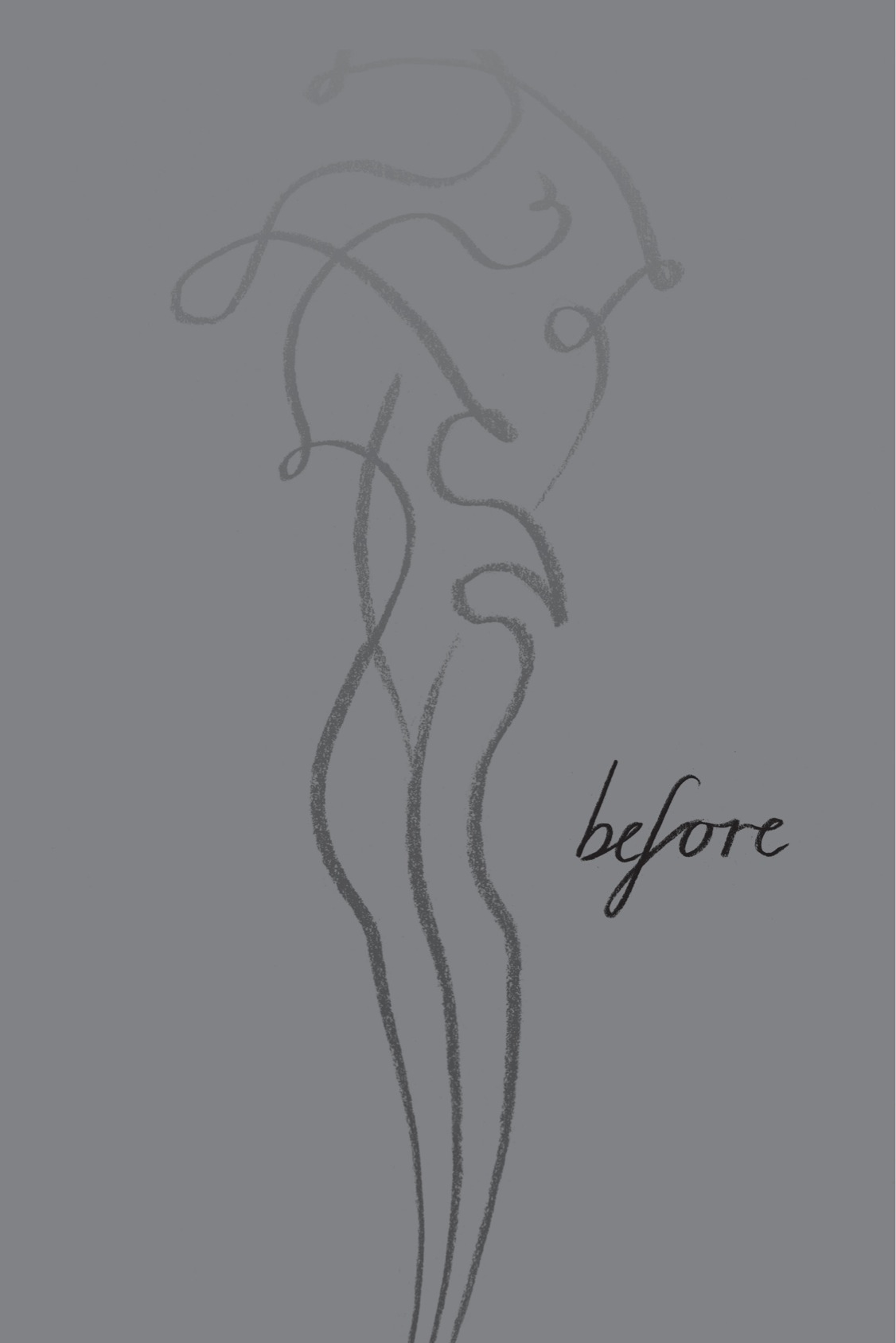
one hundred thirty-six days before
THE WEEK BEFORE I left my family and Florida and the rest of my minor life to go to boarding school in Alabama, my mother insisted on throwing me a going-away party. To say that I had low expectations would be to underestimate the matter dramatically. Although I was more or less forced to invite all my school friends, i.e., the ragtag bunch of drama people and English geeks I sat with by social necessity in the cavernous cafeteria of my public school, I knew they wouldnt come. Still, my mother persevered, awash in the delusion that I had kept my popularity secret from her all these years. She cooked a small mountain of artichoke dip. She festooned our living room in green and yellow streamers, the colors of my new school. She bought two dozen champagne poppers and placed them around the edge of our coffee table.

